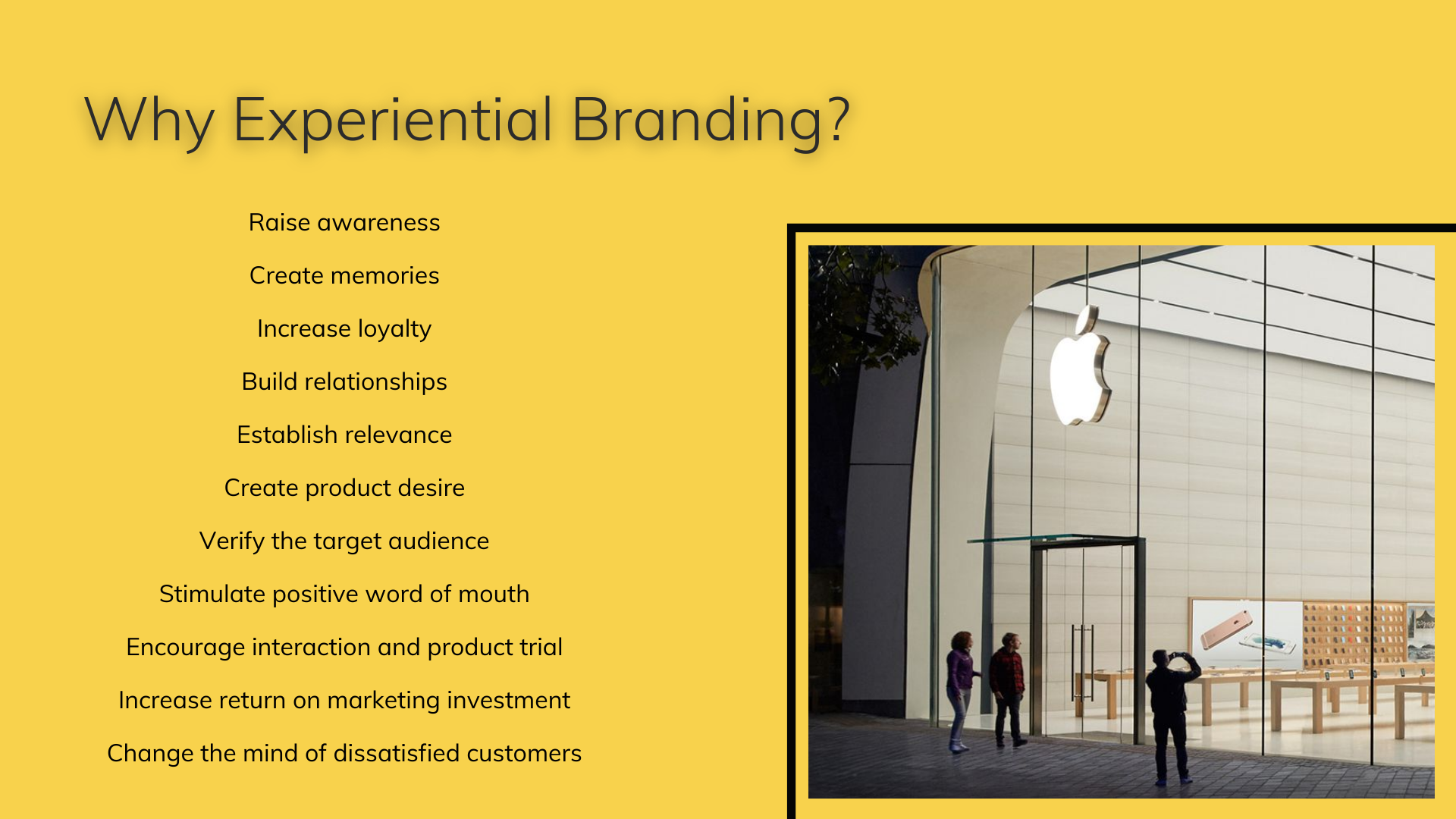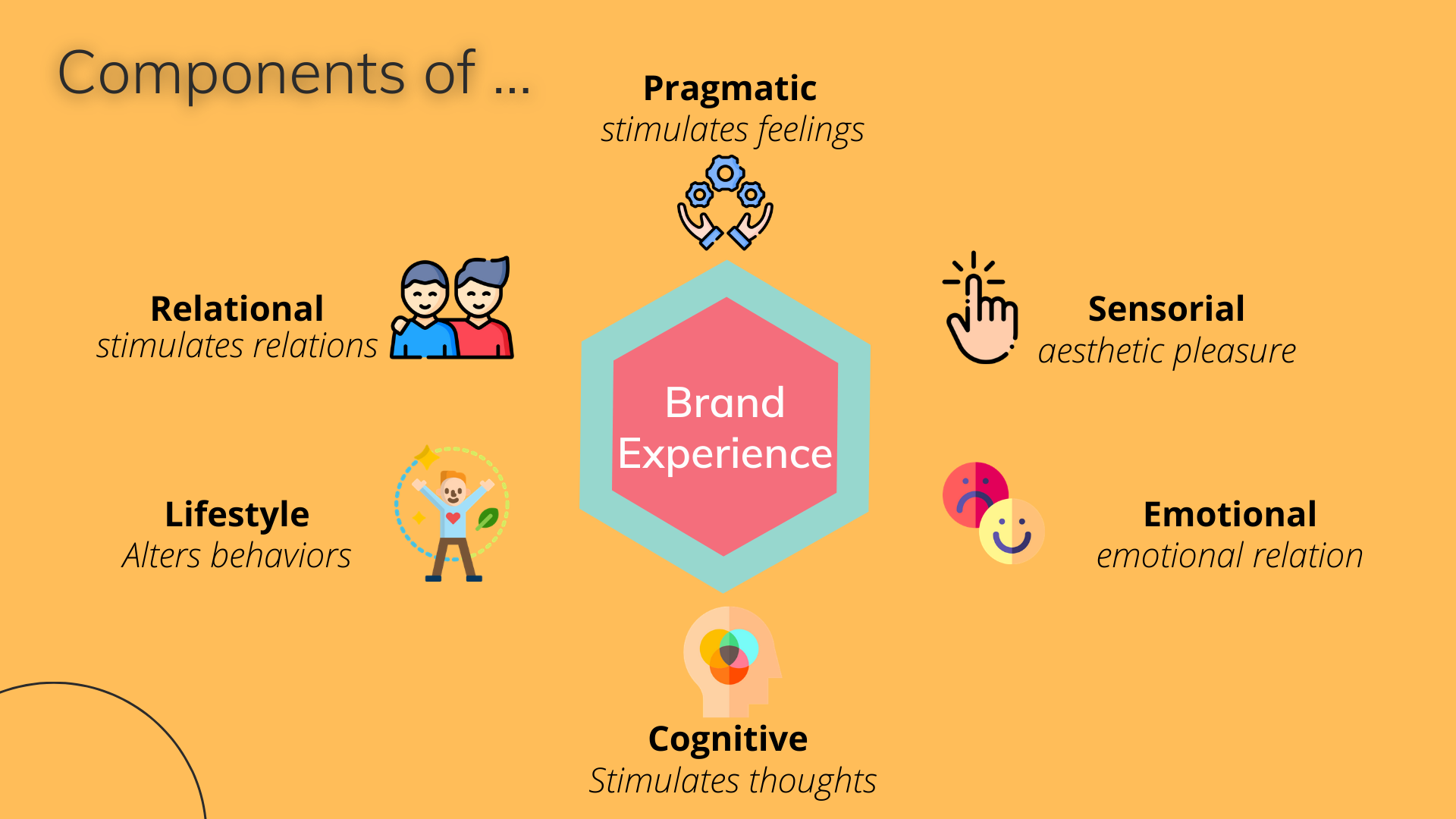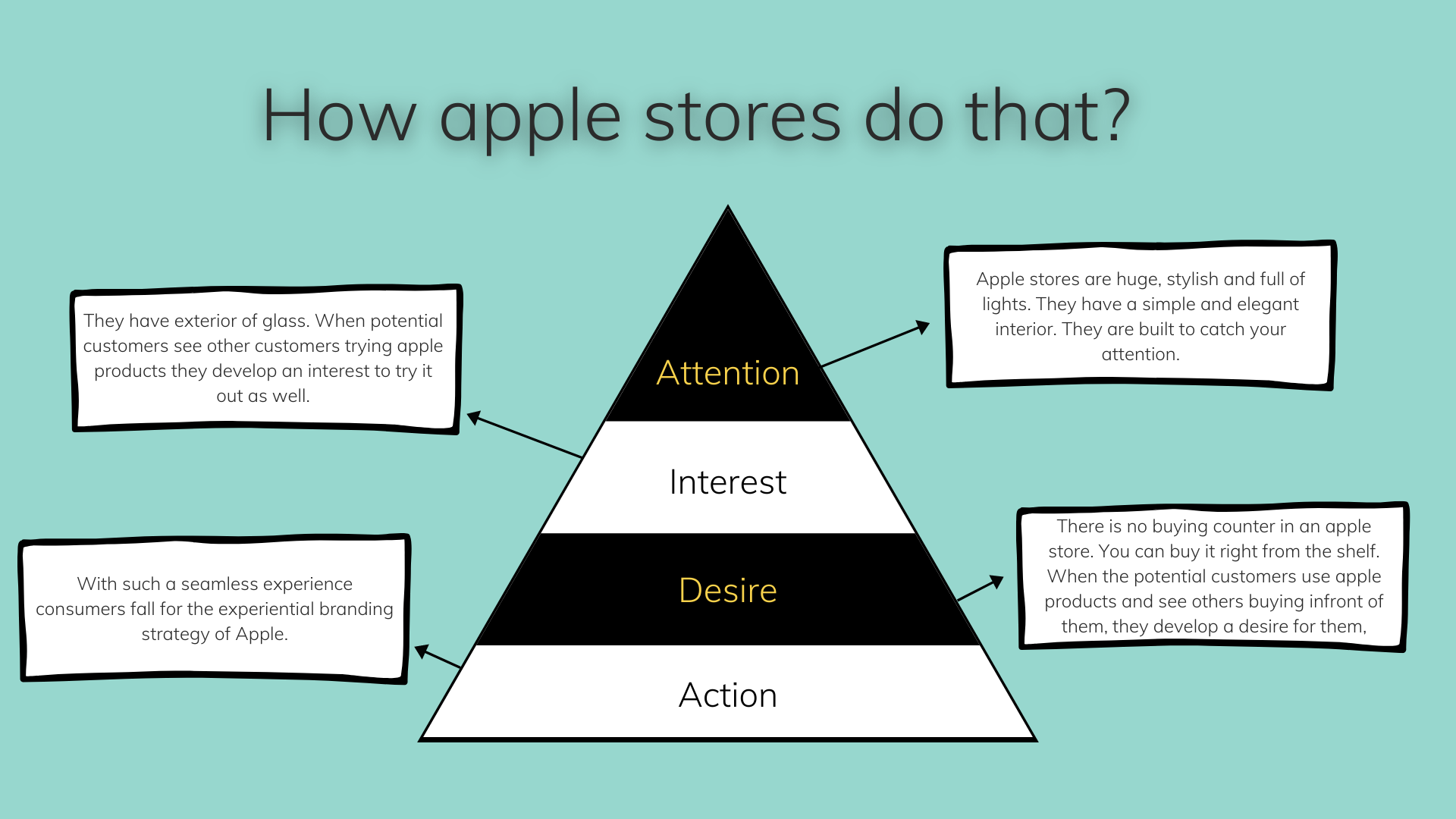Experiential Branding is a branding strategy by which brands indulge maximum sensory interactions with the consumers to influence their preferences and enhance brand perceptions. It helps in boosting brand equity. A powerful brand experience ensures a more strong footfall and increased eyeball effect. It also improves customer satisfaction and loyalty. For Example, Nestor Paris designed its e-commerce culinary experience featuring a new culinary destination each week and brings it to life through taste, film, sound, and scent.
Why Do Brands Use Experiential Branding?


Experiential Branding During The Pre-Covid Era
Apple's strategy has always been to sell an "experience." It positioned itself as a company that sells not just phones but an experience due to its user-friendly interface. Apple produced magnificent phones which provided a smooth experience to its user. Apple integrated this branding strategy into every step of its consumer journey through Apple stores. Apple stores are extravagant stores with cutting edge design that catches consumer attention from across the roads. These stores allow a potential buyer to use apple devices without feeling the pressure of buying them. Apply reflects the confidence it has in its brand, "once you use it, you will buy it."

Experiential Branding During The Post-Covid Era
The conversion rate of cosmetics is dependent on the "trial" factor. In 2018, L'Oreal acquired the Modi-face. An application that lets you try makeup on your face by uploading your photo on it. All you have to do is click your image and select what you want to try from various available options. The application became relevant after COVID 19 hit us. Now every customer can experience trying out makeup from their houses safely.
What Is The Future Of Experiential Branding
Connecting consumers during Social Distancing:
With the increase in social distancing as a norm, experiential marketing will become more digital. People are spending more time online, and using connected devices as they are mandated to stay inside, giving more opportunities for users to interact.
Leveraging New Technologies More Frequently
Social distancing is likely to remain the new normal for some time after we get through the COVID-19 crisis. To ensure that consumers continue to experience the brand, brand managers need to leverage more recent technologies such as artificial intelligence and virtual reality.
The Rise of Gamification
In the near future, millennials and Generation Z will have purchasing power and purchasing capacity. They are the ones that are actively involved in games, and to attract that segment, gamification coupled with giveaways can benefit the brand over its competitors.
How Can Brands Leverage Experiential Branding?
Alibaba introduced its first "FashionAI" concept store in Hong Kong. The FashionAI store uses two key features to streamline fashion retail for customers. Products in this FashionAI store have unique tracking tags featuring radio-frequency identification (RFID), gyro-sensors, and low-energy Bluetooth chips, which allows each garment lock to carry specialized information. The gyro-sensor will even enable the tag to determine whether the item is being touched, moved, or picked up. The store's mirrors have touch screens that use information relayed by the intelligent locks on each product to display data for the items customers are interacting with automatically. These devices can also suggest other apparel to complement the things customers pick up and help shoppers find where products are located, and add garments to a virtual shopping cart. Such experiences enhance consumer convenience, keep them engaged, thereby increasing market share and brand value.
Stay hooked to read more insights about new marketing trends.
***
Recommended For You:
